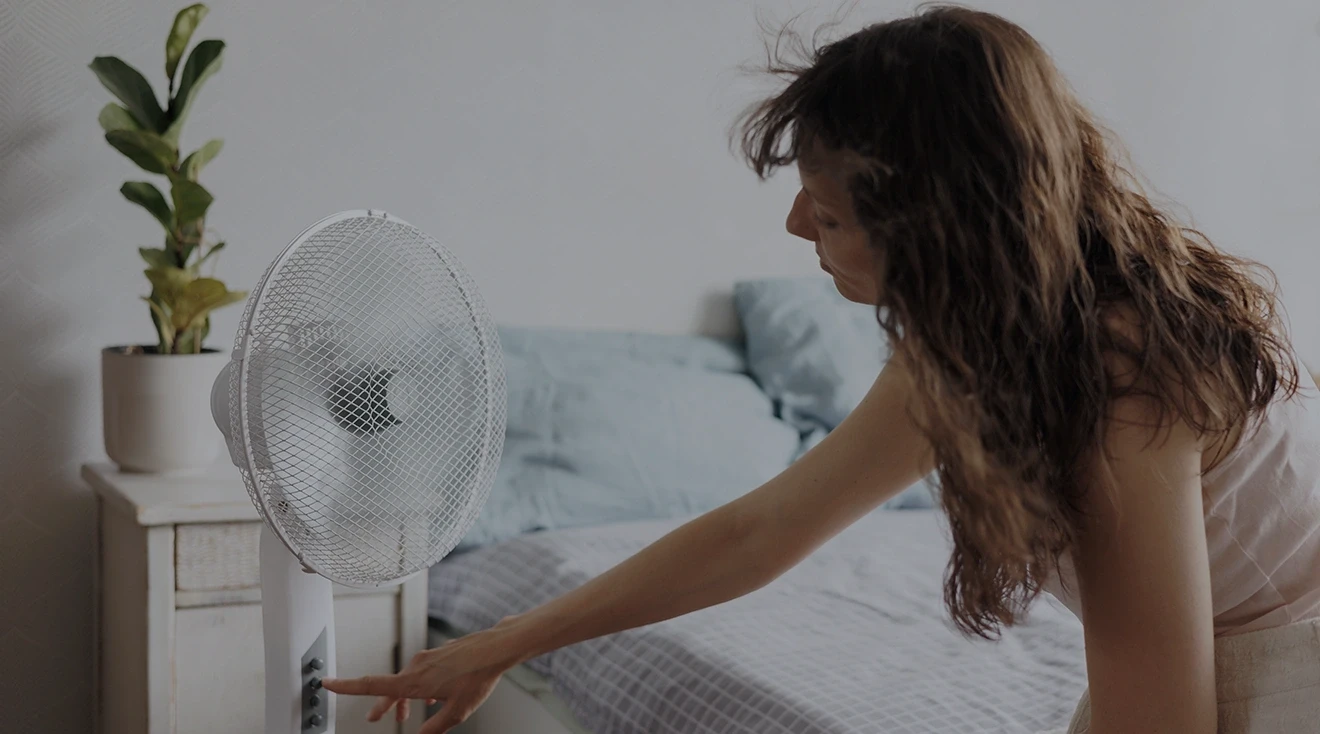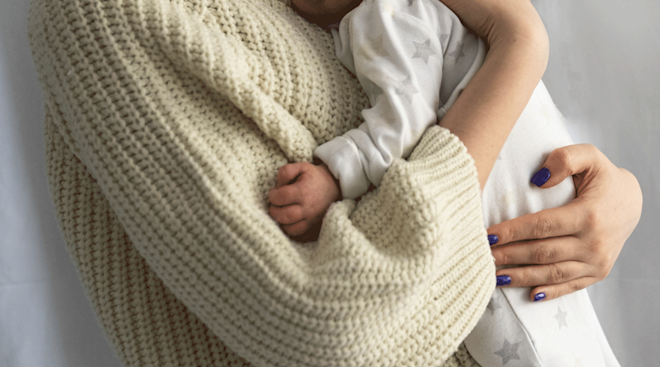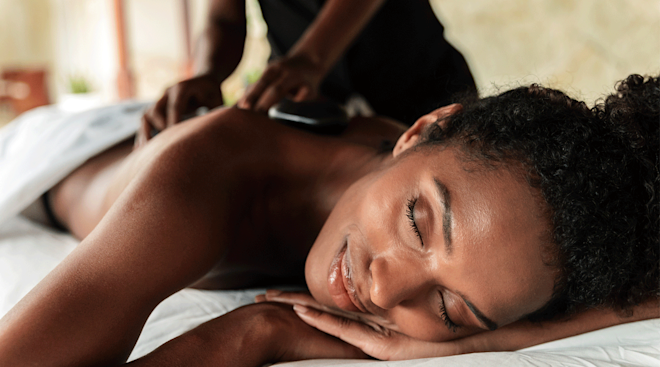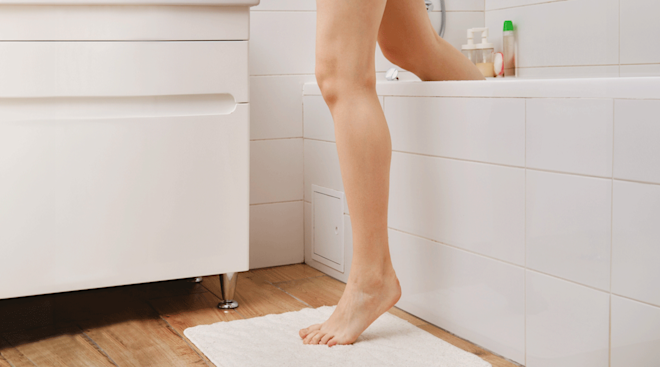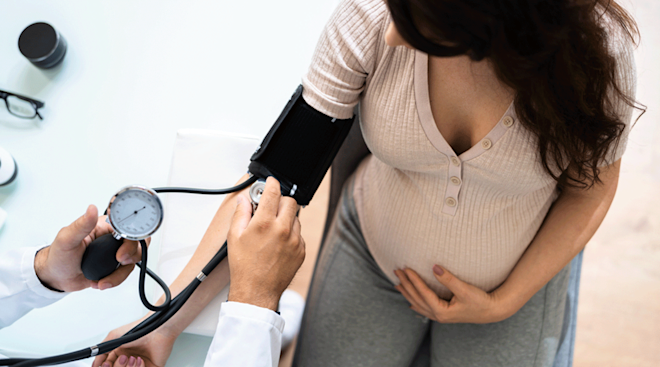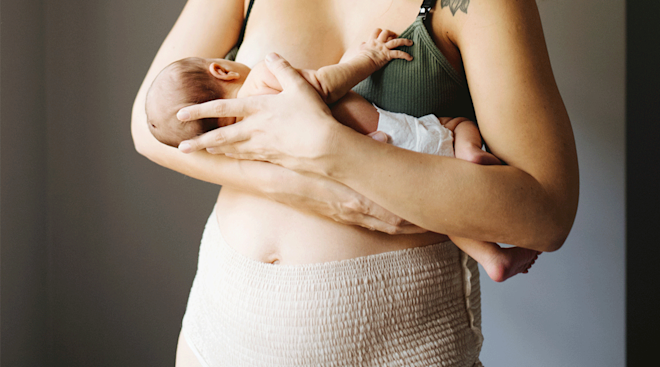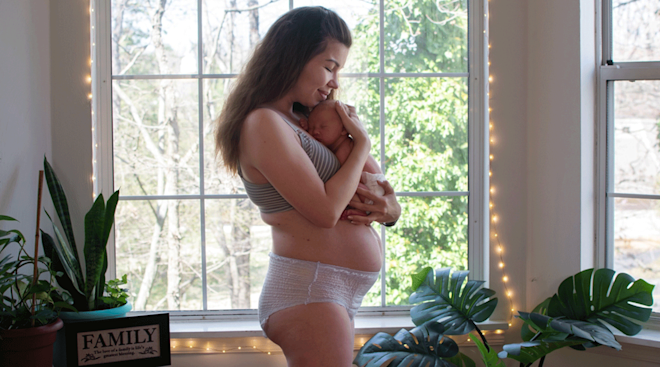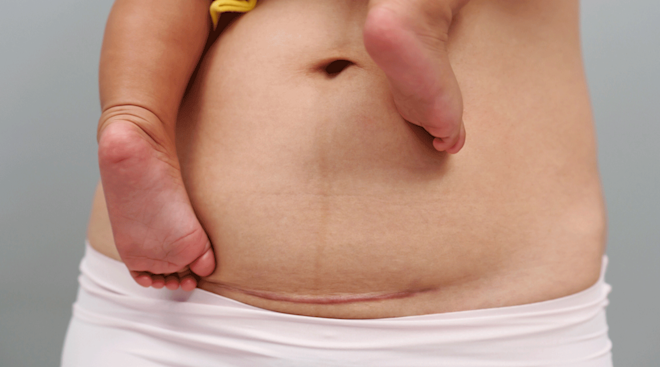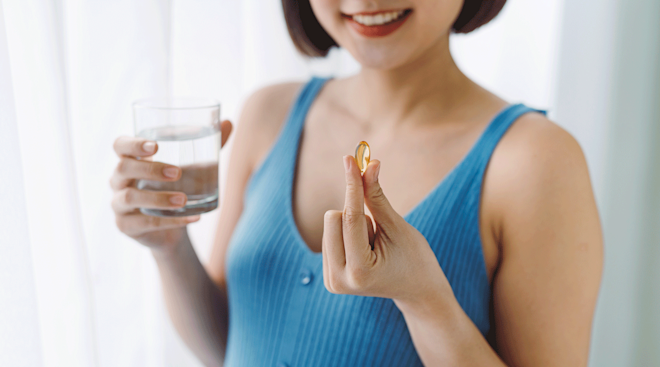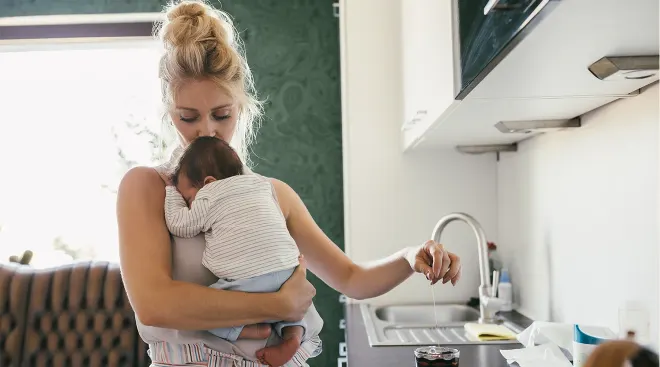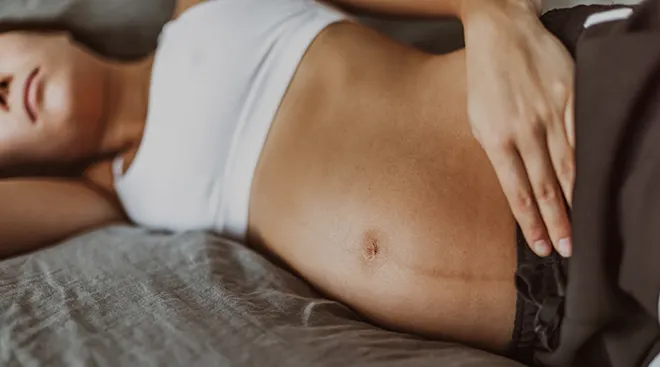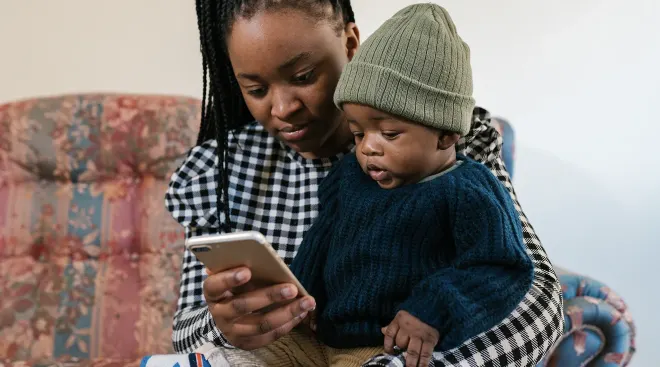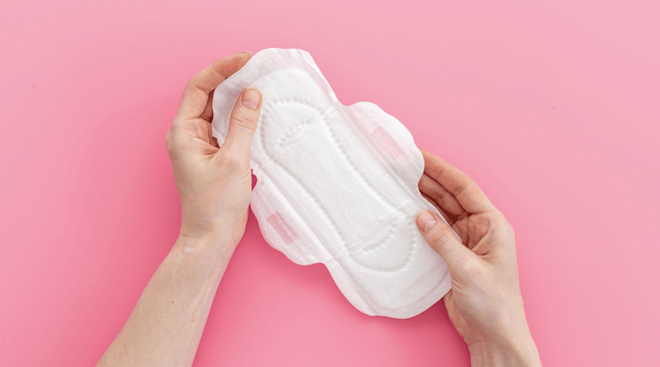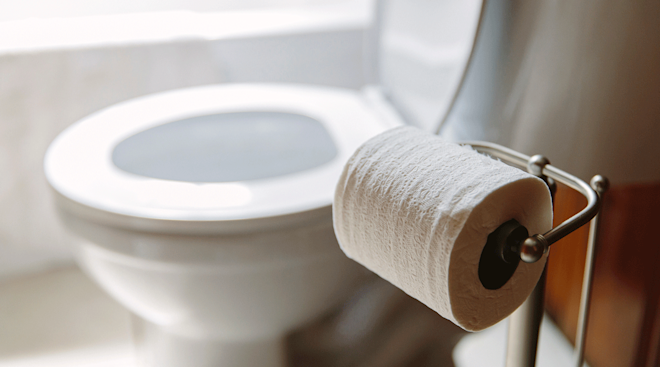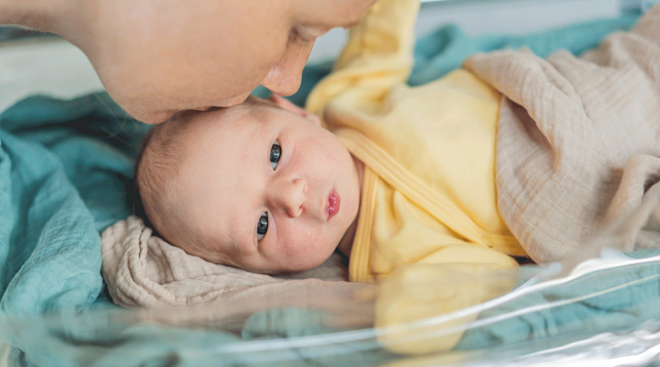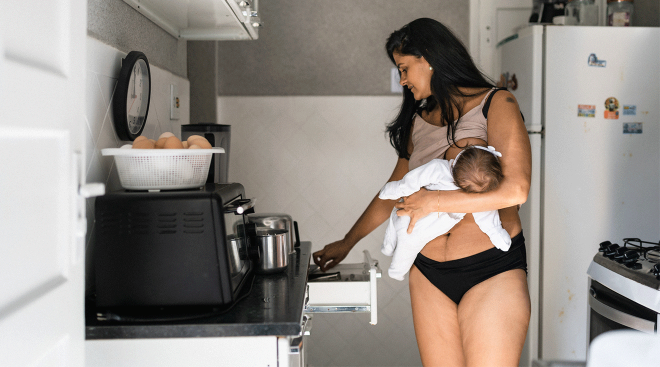Why You're Dealing With Postpartum Night Sweats
It’s no secret that babies can keep you up at night, especially during the newborn period. But if baby’s not the only reason you’re waking, you’re not alone. Postpartum night sweats—a result of post-baby hormonal changes in your body—are pretty common. But how long do postpartum night sweats last? And what can you do to feel more comfortable throughout the evening hours? Here’s what you need to know about this annoying, but temporary phenomenon.
Postpartum night sweats is a term for when you sweat more than usual at night in the weeks after having a baby, according to the Cleveland Clinic. “During the first weeks postpartum, you may wake up feeling drenched with sweat and even in need of a change of clothes or bedding,” says Julie Lamppa, APRN, CNM, a certified nurse midwife at Mayo Clinic and co-author of Obstetricks. Postpartum night sweats are pretty common, affecting about 29 percent of women after delivery, according to research.
Unfortunately, this can happen more than once a night, says Asima Ahmad, MD, MPH, FACOG, a reproductive endocrinologist and co-founder of Carrot Fertility. “It can be uncomfortable and cause loss of sleep,” she adds.
As you can probably guess, all of those changing hormones are the culprit behind postpartum sweating. “After baby is born, there’s a sudden drop in both estrogen and progesterone,” Lamppa says. “This decrease in estrogen triggers your body into thinking it’s too hot. Your body then responds by attempting to cool down, which is done through sweating.” (This is similar to how hormone changes in the perimenopausal phase can cause hot flashes.)
But exactly how your hormones affect your temperature is “not yet precisely understood,” says Kirstin Leitner, MD, an assistant professor of clinical obstetrics and gynecology at the Perelman School of Medicine at the University of Pennsylvania.
While every new parent is different, there’s a general range for how long postpartum night sweats last. “Many women experience postpartum night sweats in the first few days to weeks postpartum,” says Leitner. Most experts say they resolve within a few weeks, although Lamppa adds that they might continue for longer if you’re breastfeeding.
There isn’t a treatment for postpartum night sweats, but there are a few things you can do to stay more comfortable. “Generally treatment is ‘supportive,’” Leitner says. “There are no recommended medication or supplement treatment options.” That said, Lamppa recommends doing the following:
- Cool down your bedroom. “Keep your bedroom at a cooler temperature than usual,” she says. If you find that your postpartum night sweats are particularly bad, you can try having a fan blow directly on you, she says.
- Dress lightly for bed. Minimal clothes or loose-fitting PJs are ideal. “Change anything that becomes wet versus continuing to sleep in [it], which will get uncomfortable,” Lamppa says.
- Layer a towel or folded blanket underneath you while you sleep. That way, you can peel off any wet bedding easily and get back to sleep, she says.
- Keep ice water at your bedside table. This can help you stay cool and also improves hydration—a perk for nursing moms in particular, Lamppa says.
Postpartum night sweats on their own are normal and common. But if you also experience fever, chills, an increase in pain (in your breasts, incision or uterus), an increase in postpartum bleeding and/or odorous vaginal discharge, reach out to your doctor. Lamppa says that these could be signs of infection.
As unpleasant as it may be, postpartum sweating is par for the course. Fortunately, postpartum night sweats will likely go away within a few weeks. And that’s great news—after all, you need all the sleep you can get since it’s likely baby’s already working overtime to keep you up.
Please note: The Bump and the materials and information it contains are not intended to, and do not constitute, medical or other health advice or diagnosis and should not be used as such. You should always consult with a qualified physician or health professional about your specific circumstances.
Plus, more from The Bump:
Asima Ahmad, MD, MPH, FACOG, is a reproductive endocrinologist, infertility specialist and co-founder of Carrot Fertility. She earned a combined medical and public health degree from the University of Chicago Pritzker School of Medicine and the Harvard T.H. Chan School of Public Health.
Julie Lamppa, APRN, CNM, is a certified nurse midwife at Mayo Clinic in Rochester, Minnesota, and co-author of Obstetricks. She’s also a clinical instructor in the Department of Obstetrics and Gynecology at the Mayo Clinic College of Medicine and Science and a contributing editor of Mayo Clinic Guide to a Healthy Pregnancy.
Kirstin Leitner, MD, is an assistant professor of clinical obstetrics and gynecology at the Perelman School of Medicine at the University of Pennsylvania, where she also earned her medical degree.
Cleveland Clinic, Postpartum Night Sweats, January 2023
Fertility and Sterility, Prospective Evaluation of Nighttime Hot Flashes During Pregnancy and Postpartum, December 2013
Navigate forward to interact with the calendar and select a date. Press the question mark key to get the keyboard shortcuts for changing dates.
































